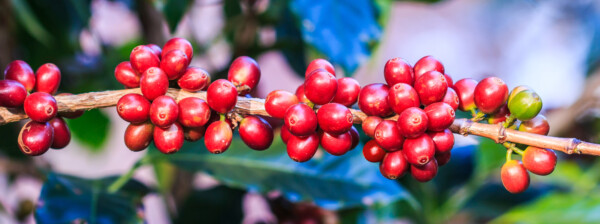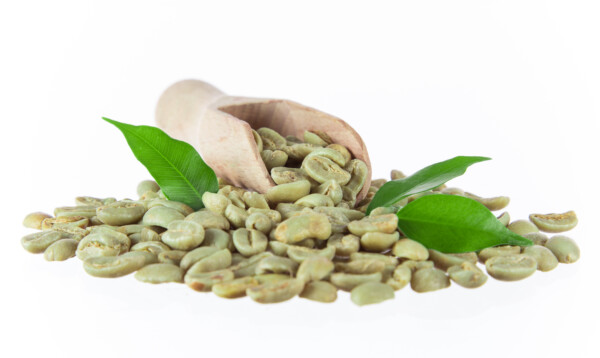
Pressures to measure and mitigate risks increase the importance of traceability in agrifood chains and sustainability programs to access more demanding markets.
The year of 2022 began with ESG in the mainstream of the global economy. The climate agenda stands out in the commitment with decarbonization and transition to net zero in various sectors. The perspective is for increased demands for more transparency and detailed accountability from companies regarding their sustainability agendas and the impacts generated along their supply chains.
As an example, in January 2022 Larry Fink, a billionaire businessman and CEO of BlackRock – an American multinational investment management company – published a new letter to CEOs around the world.
Each year, the letter seeks to encourage business leaders to run companies with a longterm mindset that will provide long-lasting returns to shareholders over time.
This year’s letter focuses on encompassing stakeholder capitalism as a catalyst for change to help individuals build a better future, drive innovation, build resilient economies, and help solve some of the challenges facing all of society. The investment manager’s belief is that companies perform best when they are deliberate about their role in society and act in the interests of their employees, customers, communities, and shareholders.
The Covid-19 pandemic has heightened consumers’ awareness of the global nature of socio-environmental and health challenges, and they want more information about the impacts of their spending.
A survey conducted by the consulting firm Simon-Kucher & Partners¹, with more than 10,000 people in 17 countries, reinforces that sustainability is becoming increasingly important in purchasing decisions. Globally, 85% of respondents indicated a change in their behavior over the past five years to be more sustainable. The behavior is most marked among millennials and generation Z, which is maturing to represent a larger share of the consumer market.
In the coffee market, the trend is noticeable in the growing consumer awareness of responsible bean sourcing and of products with less environmental impact, such as biodegradable and compostable capsules and recyclable packaging.
Similar behavior is observed in individual investors in the financial market. In 2021, Workiva² conducted a survey with 1,000 investors in the United States, the United Kingdom, Germany, and France. The results show a broad awareness of ESG, which is ven deeper in the younger segment – again, millennials and generation Z are the ones who most demand data transparency and consider companies’ environmental, social, and governance information when making decisions about where to invest.
At the regulatory level, this scenario results in increasing pressure in the main destinations of Brazilian coffee to pass laws to improve the transparency of ESG data in the financial market and to hold companies accountable for measuring and mitigating social and environmental risks throughout their supply chains.
One example is the European Union’s Sustainability Taxonomy, which, together with the Corporate Sustainability Reporting Guidelines, aims to reduce the risk of greenwashing and to mobilize 500 billion euros per year of private investment for climate change mitigation and adaptation and social inclusion. Carbon footprint, sustainable use of water, transition to circular economy, pollution prevention and control, and biodiversity protection are some criteria suggested to define the environmental characteristic of an asset.
On the consumer side, 2022 begins with regulatory projects under discussion in Europe to make companies accountable for how They tackle critical environmental issues. These are the cases of the European Union and the United Kingdom’s proposals (the latter already at the regulatory stage) for mandatory due diligence (DD) by companies to measure and mitigate deforestation risks in their supply chains. In Germany, similar legislation passed in 2021, with enforcement starting in 2023, demanding companies to monitor risks and report human rights and environmental abuses, extending DD obligations to foreign suppliers.
In this scenario, traceability in agrifood chains and sustainability programs emerge as relevant DD tools and may become requirements for access to more demanding markets.
In line with this changing reality in the global economy, the Brazilian coffee exporting segment is building partnerships and investing in strategic projects to enhance the social and environmental assets of the national coffee industry and to demonstrate how it faces these challenges.
In March, Cecafé will release the results of its project to quantify the emissions and removals of greenhouse gases (GHG) in the three main growing regions of Minas Gerais. The study, which is a partnership with Starbucks, Lavazza, and Sebrae-MG and is carried out by Imaflora, under the scientific leadership of Professor Carlos Eduardo Cerri, from Esalq/USP, will allow communicating with more transparency the contributions of different coffee growing systems to mitigate and adapt to climate change.
In the social agenda, mitigating labor risks is underway in the collective initiative of the Global Coffee Platform (GCP) “Social well-being in coffee farming”, of which Cecafé is one of the coordinators together with the Institute for the National Pact to Eradicate Slave Labor – InPACTO.
The initiative began in 2022 by training technical multipliers from partner companies and cooperatives in the methodology of non-violent communication, as a strategy to deepen perceptions, enhance dialogue, and social transformation, introducing an innovative approach for the promotion of decente work in the field.

Other emerging challenges will also be addressed in 2022, such as the expansion of traceability in the coffee production chain, the digitalization of training for coffee growers and rural workers on priority themes for the production chain, and the promotion of Brazilian coffee image, with ESG at the center of the agenda. Anticipating trends, the export sector is working to consolidate Brazil’s leadership in the global supply of sustainable coffees.
¹ Global Sustainability Study 2021- https://www.simon-kucher.com/en/blog/global-sustainability-study-what-role-do-consumers-play-sustainable-future
² Individual Investors’ ESG Attitudes – https://www.workiva.com/sites/workiva/files/pdfs/press-and-news/esg_survey_fact_sheet-en.pdf
Marcos Matos
CECAFÉ CEO
Silvia Pizzol
CECAFÉ Sustainability Manager


Leave A Comment